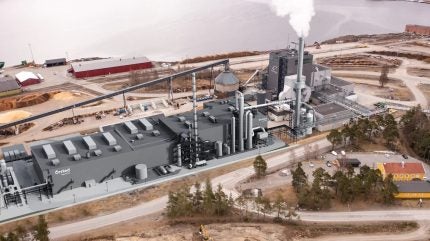
Renewable energy company Ørsted has abandoned an e-methanol plant aimed at supplying the maritime industry in a dramatic decision to focus its efforts on green hydrogen, citing a slow-moving market for liquid e-fuels.
The Danish company said it would be immediately halting development of the FlagshipONE e-methanol plant, despite taking a final investment decision on the project in 2022 after assuming full ownership from Liquid Wind.
CEO Mads Nipper said: “We continue to believe in the long-term market for e-fuels, but the industrialisation of the technology as well as the commercial development of the offtake market have progressed significantly slower than expected.”
“We will continue our focus and development efforts within renewable hydrogen as we believe that hydrogen will be a critical part of the European industrial economy for decarbonising steel, chemicals, and refineries and as an input to liquid e-fuels longer term.” He added.
The Danish company made the announcement about FlagshipONE in its half year results, when it also revealed a delay to the construction of a major offshore wind project in the US.
According to its reports, the decision to cease execution of the e-fuels project led to a loss of DKr1.5bn ($221m), almost half of its total impairment losses for the first half of the year.

US Tariffs are shifting - will you react or anticipate?
Don’t let policy changes catch you off guard. Stay proactive with real-time data and expert analysis.
By GlobalDataIn addition to high project costs for the plant, Ørsted revealed that it had also struggled to gain interest in the products of FlagshipONE, which would have been its first large-scale Power-to-X facility and had been described by the company as “the world’s strongest proof point that carbon-neutral shipping is possible.”
Nipper said the business case for the project had “deteriorated” over the last two years due to an inability to secure “long-term offtake contracts at sustainable pricing”, despite the company saying it was expecting a grant from the EU’s Horizon Europe fund as recently as December.
Ørsted’s original plans would have seen the factory in Örnsköldsvik, Sweden open in 2025 and produce about 55,000 tonnes of e-methanol per year, it had been called a “breakthrough project” by Nippen.
The company’s claims about the e-fuels market come amid an apparent readjustment of the shipping industry’s outlook on the use of methanol as a shipping fuel, with fellow Danish company Maersk recently moving to a multi-fuel strategy for its fleet after previously investing heavily into methanol vessels.



